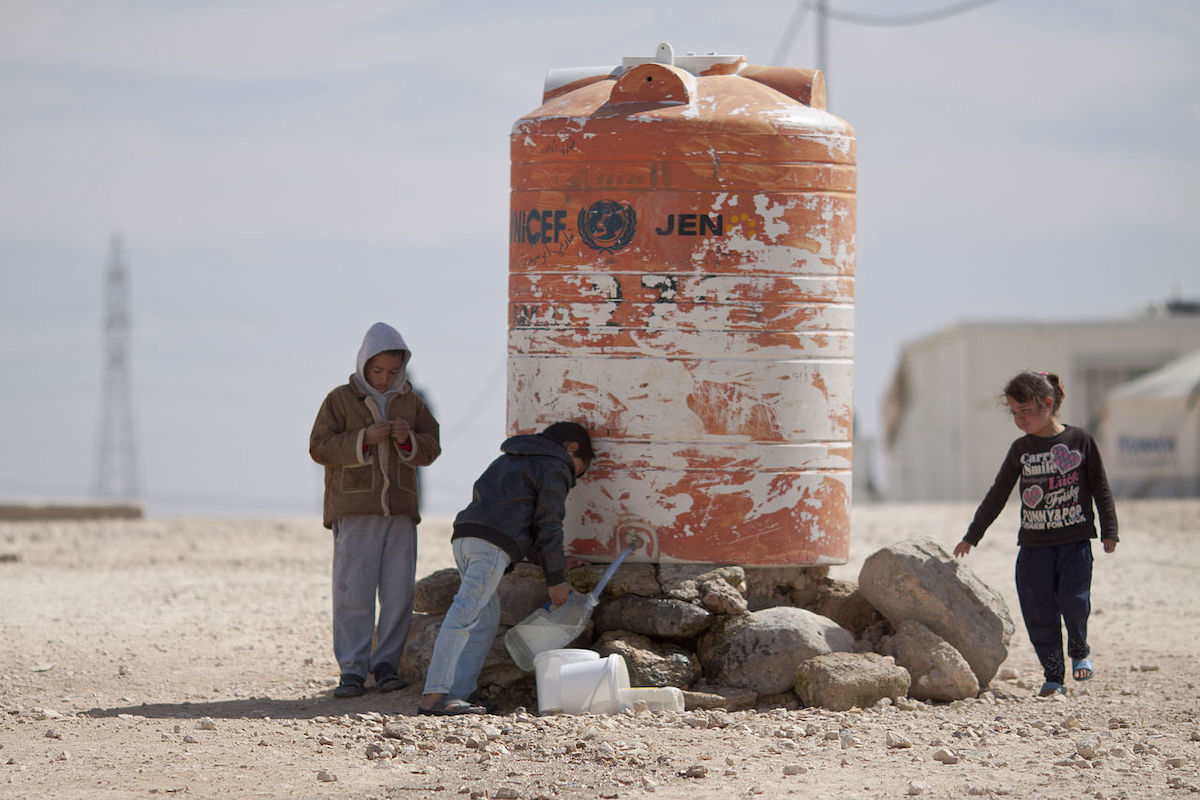By Selen Ozturk & Dahlia M. Taha | Al Enteshar Newspaper
Summer heat waves in Jordan and Syria have U.S. diaspora populations concerned about relatives and friends vulnerable to water and electricity shortages in countries experiencing record temperatures.
The Jordanian Meteorology Department issued a heatwave warning on August 12, advising citizens to drink plenty of fluids, not to be exposed to direct sunlight, and to wear light clothes and hats.
“According to weather indicators, there will be more heat waves throughout August. Jordanians must be prepared for this,” said Director General Raed Al-Khattab.
Areas throughout the country — including its northwest capital, Amman, and the southern border city of Aqaba — have endured temperatures exceeding triple digits Fahrenheit since July.
Jordanian born Fatmeh Bakhit is the founder of the group Arab-Americans for Syria. “In Jordan, the water shortages are the worst problem right now,” she said. “They give small cities, or areas of a larger city, one day for water — say, it’s Wednesday, the water is on for you to fill your tank with from morning until midnight, but if you’re a big family and you run out before next week, you have to buy it from a private company.”
Water scarcity in Jordan has worsened over the last decade as spiking temperatures and prolonged droughts have dramatically reduced the nation’s water supply. According to UNICEF, current levels are enough to meet demand for just two-thirds of the population.
“Although the water shortages are most serious, neither are the houses in Jordan prepared for this heat electrically,” she added. “They don’t have central or even portable air conditioning; only a little fan, which does nothing in 100, 110 degrees but push more hot air around.”
In Syria, heat poses new dangers for refugees
All of Syria has been similarly boiling since July, which NASA declared the hottest month ever recorded on Earth. Temperatures in the southwestern capital, Damascus, soared to 110F last week, with some eastern provinces breaking 115F.
Power outages and electricity grids strained by these conditions have left Syrians desperate for respite.
“Ten years ago, and before the civil war which has raged since 2011, there was no electricity trouble in Syria,” said Bakhit. “My sources all throughout the country now tell me the power doesn’t come — sometimes for an hour, sometimes the whole day, sometimes frequently and sometimes infrequently — but you never know when that will be, so it makes no sense to buy food to put in the fridge, even if you can afford it.”
Refugees are among the most vulnerable to the heat in Syria. The UN Refugee Agency reports that, as of 2022, over 12 million Syrians remained forcibly displaced in the region, including nearly 6.8 million within Syria itself.
As the war drags on, the humanitarian crisis has only worsened: the UN reported last May that, for the first time in 12 years, people in every district of Syria were experiencing “humanitarian stress,” with 70% of the country’s population — nearly 15.3 million people — needing humanitarian aid.
The massive earthquake that struck parts of Syria and Turkey in February 2023 — killing upwards of 60,000 — exacerbated the already woeful lack of resources in the region, though Bakhit notes that without the required energy to power it, all the cooling infrastructure in the world would do nothing to relieve refugees from extreme heat now afflicting the region.
She added that sanctions imposed by the US against the regime of Syrian President Bashar Assad for alleged war crimes are proving to be a major factor hindering the expansion of the nation’s dilapidated energy grid. The sanctions target Assad and members of his family and prohibit the transfer or sale of goods or services that would support development of Syria’s energy sector.
Former Syrian Foreign Minister Walid Muallem is among the more vocal critics of the sanctions, arguing that in the name of human rights they harm those more vulnerable.
Bakhit agrees, noting the sanctions punish those within Syria tied to energy infrastructure and anyone outside the country who attempts to deliver badly needed resources, including generators. Negotiations last year to route electricity from Jordan through Syria to Lebanon, or to Israel in exchange for water fell apart over fears of violating the sanctions. “It affects all of our daily lives as the heat gets worse,” she said.
Elian Sayegh is a Syrian in Los Angeles who frequently returns to Syria for an ongoing project to restore his war-ravaged home. “We are experiencing daily power outages for more than 10 hours a day in temperatures that exceed 43 degrees,” or 109 Fahrenheit, he said. “It is insufferable and impossible to live.”
“The climate crisis adds an entirely new layer of challenges while also exacerbating existing crises,” he continued. “Where are we supposed to go when the danger is climate?”
This story was produced as part of a collaboration with the Office of Community Partnerships and Strategic Communication for their Heat Ready CA public awareness and outreach campaign. Visit Heat Ready CA to learn more.




